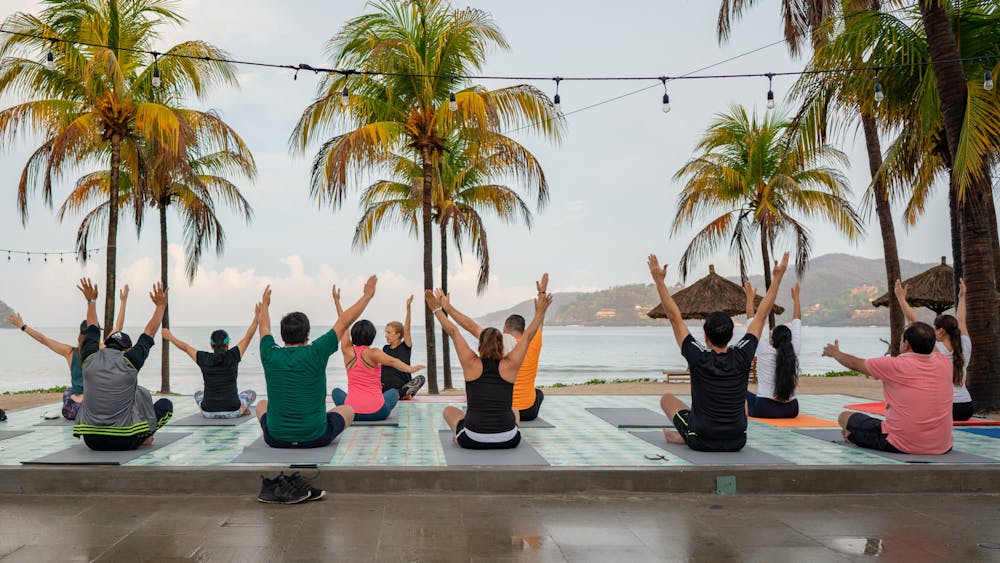By Zo Terrana
Staff Writer
The Veterans Administration introduced a new self-funded program aimed at treating post-traumatic stress disorder along with other mental health issues like depression. These treatments include two psychedelic drugs called psilocybin and MDMA.
The VA cannot prescribe these drugs or even recommend them to veterans, but these trials have opened a gateway into new recovery efforts. The drugs’ accessibility could take years, causing many veterans to have to wait for access. However, a select few veterans across the United States have received firsthand access.
In desperate need of help, veterans venture to countries where these substances are legal. The retreats offer a way into psychedelic drug usage even in the form of indigenous ceremonies. This specific retreat that nine veterans participated in was located in a small village in Puerto Vallarta, Mexico.
The Mexico veteran retreat had specific stipulations for entry and selection. The first was an effort to lay off any antidepressants or anxiety medication with the coordination of their own doctors. The second stipulation was to attend a medical screening.
This retreat was produced by The Heroic Hearts project, which was founded in 2017. Former Army ranger Jesse Gould founded the project. Gould participated in a retreat similar to this project in Peru, where the psychedelic drug ayahuasca was used. Gould criticized the system of veteran help within the U.S. since most of the veterans have to go elsewhere abroad to seek treatment.
CBS News sat down with multiple veterans to uncover their journeys with PTSD and how these drugs can help their recovery process.
TJ Duff has battled with PTSD due to his tenure as a U.S. Navy sailor. Joining the Navy at 18 years old, Duff endured his first traumatic experience while on the USS Cole in Yemen. Just months into his first deployment, Duff averted death by an attack from two suicide bombers which killed 16 of his fellow sailors.
The next attendant, Randy Weaver, has dealt with his own PTSD struggles from his tenure as an Army staff sergeant. Weaver was diagnosed with PTSD in 2007 following his tours in Bosnia and parts of the Middle East.
Weaver revealed his PTSD struggles came from his repeated visions of traumatic events, wishing they had gone differently. Using the assistance of psilocybin, he welcomed the revisiting of traumatic thoughts, in hopes that the psychedelic substance would help him cope with his inner demons. Weaver has had a successful venture in Mexico, telling “60 Minutes,” “I don't have any of those thoughts since– since goin' through– through this journey.”
Micheal Giardina, another veteran selected, has had an ongoing mental health battle following his military career. Having served as an operations specialist in the Middle East and excelling through the ranks, he found a new “family.” Coming back to the U.S. away from that “family” was a difficult change. The assimilation back to civic life and away from “the bubble” of the military was “brutal,” Giardina stated. However, Giardina and various other PTSD-suffering veterans have begun a new journey of healing their mental health struggles.
Three psychedelic events were held by the project’s appointed “traditional healers.” The drug psilocybin was present in the first two events for the veterans. This substance, utilized for centuries, has been used in indigenous Mexican communities. The chemical, found in certain mushrooms, activates serotonin receptors which are primarily found in the prefrontal cortex. The main effects of this chemical are often euphoria and relaxation.
This experience for the veterans lasted more than five hours. A reflection discussion the next day amongst themselves then took place. After the project's completion, the veterans had virtual meetings with the project's counselors.
According to “60 Minutes,” eight out of the nine veterans' mental health issues and symptoms improved. Multiple veterans called their psychedelic experiences “life changing.”
Weaver showed positive sentiments to the psychedelic drug program. He said, according to CBS, "I don't have any of those thoughts since going through this journey.”
Duff, on the other hand, had a counter productive experience with the retreat. He claimed that his mental health suffered at the hands of the substance usage. Duff is now back on antidepressants.
Despite the overall success of the psychedelics helping the mentally wounded veterans, VA officials are not fully opening the door to psychedelics yet. According to Healthline, these substances like MDMA are expected to become more common.







